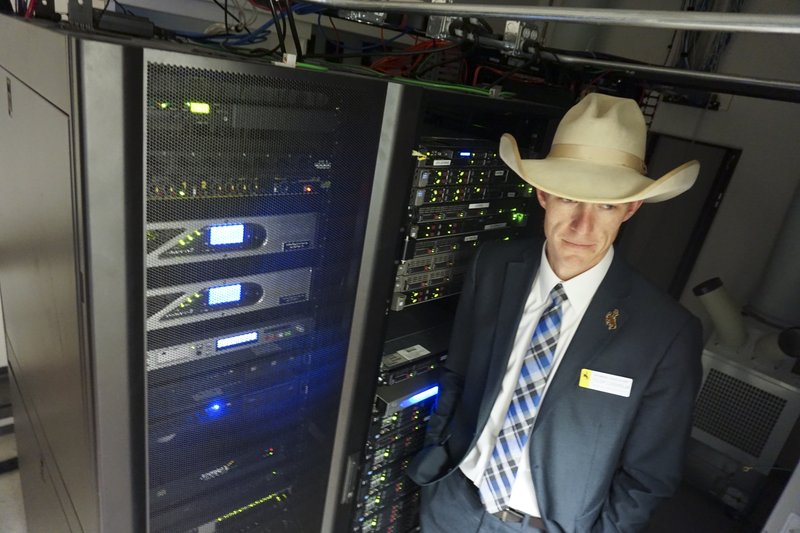CHEYENNE, Wyo. -- Block Chain Gang LLC, Crypto Cowboy, Something Something Blockchain LLC: Based on the names of dozens of new companies registering to set up shop in Wyoming, the state's effort to lure the latest tech craze appears to be paying off.
Proponents say blockchain -- the ledger where transactions of digital currencies, such as bitcoin, are recorded -- could be the kick in the pants Wyoming needs to attract tech businesses and diversify its economy beyond fossil fuels.
As for how many of these new businesses will get off the ground in Wyoming or anywhere else, time will tell. So far, only a small fraction of them exist as more than electronic paperwork.
Wyoming is willing to find out. In March, Gov. Matt Mead signed four blockchain-friendly bills that arguably make the least-populated state friendlier to the technology than any other.
One new law exempts certain types of blockchain tokens, or cryptocurrencies issued to people who invest in tech startups, from state securities laws.
Another allows businesses incorporated in Wyoming to use blockchain for record-keeping, promising easier and more accurate files on transactions and shareholders. The other two facilitate cryptocurrency trading and exempt cryptocurrency from property tax -- a measure more symbolic than anything because Wyoming doesn't have property taxes.
"If you can grab that tiger by the tail, your advantage over other states is tremendous," said state Rep. Tyler Lindholm, a Republican rancher and electrician who sponsored the bills.
The stakes are high as Wyoming struggles with low prices for oil and natural gas and weak demand for coal. The fossil fuels account for 20 percent of Wyoming's economy, more than any other state, and the industry's recent weakness has saddled the state with a $500 million deficit.
Other states hoping to lure tech companies with blockchain-friendly laws include Arizona and Tennessee, which also will now let businesses use blockchain for record-keeping.
One potential problem in Wyoming: Under the U.S. Constitution's supremacy clause, blockchain tokens sooner or later are likely to be regulated by federal law and the U.S. Securities and Exchange Commission, which take precedence over state securities laws and regulations.
"It's taking a sort of pro-business stance, which is great in some respects," Clyde Tinnen, a blockchain lawyer with the Withers Bergman law firm in New York, said of the state incentives. "The tricky part is that as a result of the supremacy clause, it may not be as beneficial as they hope."
SundayMonday Business on 05/27/2018
